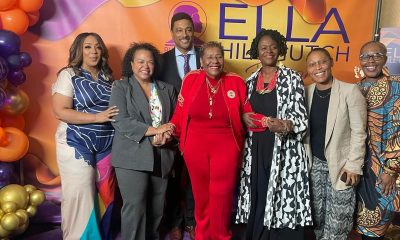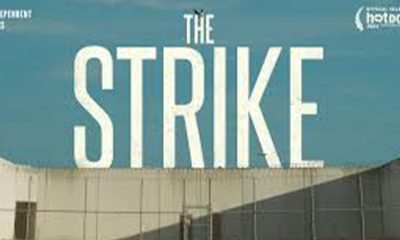Bay Area
Murder Convictions Thrown Out After Witness Said OPD Officer Paid to Her to Lie
A man who was sentenced to life in prison for a 2011 murder in North Oakland was quietly released from prison last September after a key witness reversed her previous trial testimony, now saying in sworn testimony that she had felt “pressured” to lie on the stand by Oakland police Detective Phong Tran, who secretly paid her thousands of dollars before the trial.
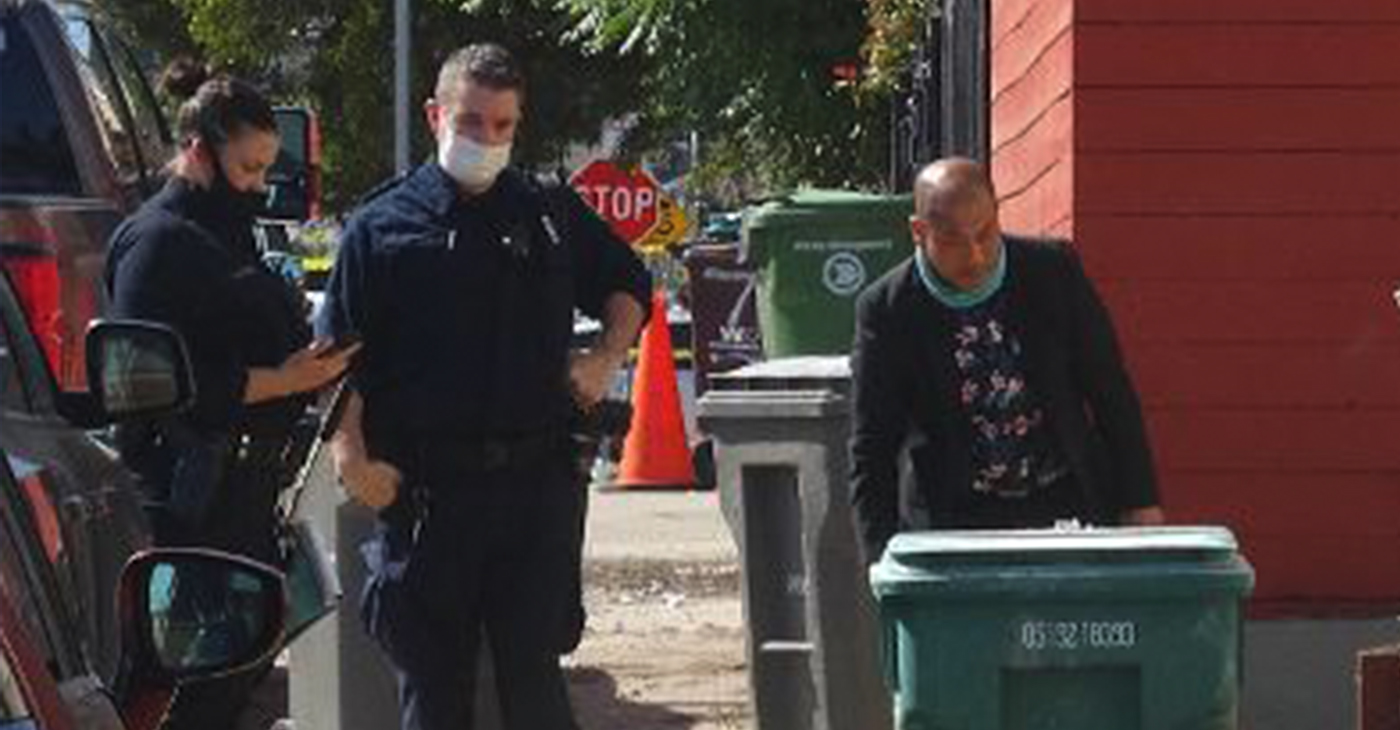
By Ken Epstein
A man who was sentenced to life in prison for a 2011 murder in North Oakland was quietly released from prison last September after a key witness reversed her previous trial testimony, now saying in sworn testimony that she had felt “pressured” to lie on the stand by Oakland police Detective Phong Tran, who secretly paid her thousands of dollars before the trial.
Giovonte Douglas, who had served nine years in prison, was released along with Cartier Hunter, who was also serving a life sentence for the murder.
The case was first made public this week by journalist Darwin BondGraham in Oaklandside, an online newspaper, which reported that it had learned about the case last week from a criminal justice source in Alameda County.
Prosecutors in former DA Nancy O’Malley’s office ultimately agreed to dismiss the case after Detective Tran admitted in court papers to paying the woman. However, he claimed the amount she was paid was much less than the $30,000 she said she received from him.
According to court records, Tran secretly paid her between $1,500 and $2,000, some of it before the trial.
Tran may also have committed perjury, according to news reports. Court records indicate he testified at the trial that he first met the alleged eyewitness, Aisha Weber, in 2013, two years after the shooting. However, Tran acknowledged recently in court documents that he knew Weber well before the 2011 homicide.
“Tran’s pre-existing relationship with the key witness—essentially his confidential informant—and the cash payments he made to her were not disclosed to Douglas’ attorneys before, during, or after his 2016 trial,” according to Oaklandside.
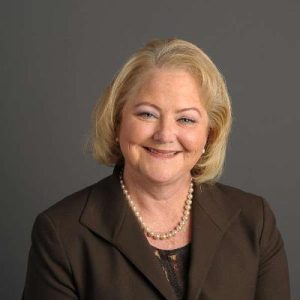
Former Alameda County District Attorney Nancy O’Malley. Official portrait.
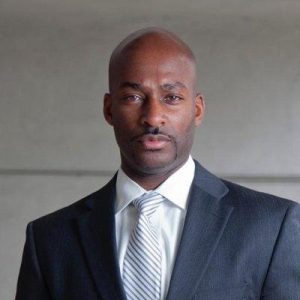
Alameda County Chief Public Defender Brendon Woods. Official portrait.
Detective Tran, a longtime member of the homicide unit, was placed on administrative leave last year in connection with the case but is currently back on duty. In 2021, he earned $427,949.23 in pay and benefits, according to Transparent California.
Matthew Dalton, Douglas’s attorney in the fight to overturn the conviction, said, “I found Detective Tran’s conduct to be shocking,” according to Oaklandside.
“Pretending a witness is simply an unknown Good Samaritan rather than a background informant deprived the prosecution, the defense, and the fact-finders essential information necessary to evaluate her credibility. Similarly, paying a witness is rife with peril. That is why the rules of disclosure are rightly so strict. Secretly paying witnesses is outrageous. In the end, everyone loses: Mr. Douglas, Mr. Hunter, and the family of Charles Butler.”
Butler, a 23-year-old graduate of the Merchant Marine Academy, was shot and killed in 2011, allegedly during an argument over a parking spot in North Oakland. Douglas, 31, and Hunter, 34, were arrested three years later and convicted of murder in 2016.
Weber, the alleged eyewitness, said in her statement that Tran took advantage of her because she was homeless single mother and destitute, pressuring her to testify against the two men.
Alameda County Chief Public Defender Brendon Woods said in a statement reported in the East Bay Times that his office has been “raising alarms” about Tran for years, but that they “fell on deaf ears” during former DA O’Malley’s tenure.
He said his office already has three additional homicide cases where “we raised concerns” about Tran’s ethics.
“We’re hoping things will be different under DA (Pamela) Price and were encouraged when she announced the formation of a Police Accountability Unit,” Woods said to reporters, reported in the East Bay Times.
“We have urged her to investigate Detective Tran’s misconduct and to dismiss all the cases he has worked on — past and present. … How could anyone trust a police officer who keeps secret his relationship with the key witness in a murder case when asked about it in court?”
The Anti Police-Terror Project (APTP) in Oakland also released a statement.
“The Oakland Police Department has and continues to be fraught with corruption and scandals … Incidents like this are exactly why Chief Armstrong needed to be held accountable for his coverup of officer misconduct. This type of behavior is the rule – not the exception,” said Cat Brooks, co-founder of APTP.
“Until we hold these officers accountable, corruption will continue to run rampant, and innocent people will continue to be sent to prison for crimes they did not commit,” Brooks said.
In addition, APTP criticized prosecutors in the case. “Defense attorneys for the exonerated man state that former DA Nancy O’Malley’s office never disclosed that the witness was a paid informant — and public defenders had warned O’Malley’s office about Officer Tran in particular, but she failed to act.
Activism
Oakland Post: Week of December 18 – 24, 2024
The printed Weekly Edition of the Oakland Post: Week of December 18 – 24, 2024

To enlarge your view of this issue, use the slider, magnifying glass icon or full page icon in the lower right corner of the browser window. ![]()
Activism
City of Oakland Celebrates Reopening of Main Library
“Libraries are such critical facilities for all Oaklanders, whether it’s children coming to story-time, adults reading the newspapers or borrowing the latest novels, and people engaging with a range of services and programs that the library hosts,” said Council President and District 2 Councilmember Nikki Fortunato Bas. “Such library services and programs are only possible when the facility’s electricity, heating, roof, and lighting are fixed and running efficiently. I’m proud to join this re-opening of our Main Public Library.”

The branch had been closed since May for critical infrastructure upgrades
Special to the Post
The City of Oakland leadership and community partners gathered to celebrate the reopening of the Main Library after completion of critical infrastructure upgrades to enhance the library’s facilities and provide a better experience for patrons.
Renovations include new roof installation, skylight repair, critical electrical system upgrades, new boiler control system installation, auditorium heating and cooling system installation, and improvements to lighting, flooring and ceilings throughout the building.
“This is truly something to celebrate, the reopening of our wonderful Main Library! I congratulate the staff and our partners for this important project to make the Main Library a more comfortable place for everyone for years to come, said Oakland Mayor Sheng Thao. “Thank you to Oakland voters and the California State Library for making these crucial improvements possible.”
“Libraries are such critical facilities for all Oaklanders, whether it’s children coming to story-time, adults reading the newspapers or borrowing the latest novels, and people engaging with a range of services and programs that the library hosts,” said Council President and District 2 Councilmember Nikki Fortunato Bas. “Such library services and programs are only possible when the facility’s electricity, heating, roof, and lighting are fixed and running efficiently. I’m proud to join this re-opening of our Main Public Library.”
“Public libraries are a wonderful resource for our residents, offering a safe space for learning and being,” said District 3 Councilmember Carroll Fife. “It is critical to improve and modernize our libraries so more members of our community can utilize and enjoy them. I’m excited that the necessary renovations to the Main Library have been completed successfully and thank everyone involved, particularly the City team, who helped secured the necessary grant funds for this work.”
“I am proud of the City staff and project partners who kept this important project on schedule and under budget,” said Assistant City Administrator G. Harold Duffey. “The library is an incredibly important resource for our community members, and this project is an investment into the library’s future.”
“December 2nd was a momentous occasion for Oakland Public Library as we proudly reopened the doors of the Main Library following extensive infrastructure repairs,” said Director of Library Services Jamie Turbak. “Closing the Main Library for six months was no easy decision, as it serves as the central hub for our library system and is truly the heart of Oakland. Yet, this renovation was essential, representing more than just physical upgrades—it reflects our ongoing commitment to creating a safe, welcoming space for everyone.”
The City Administrator Jestin Johnson also attended the press conference and signalled his support for the completion of the record-setting completion of the renovations. Gay Plair Cobb, a newly appointed Library Commissioner said the Library represents the soul and brains of our community.
The Oakland Public Library secured funding for these crititcal repairs through a variety of sources. The California State Library’s Building Forward Library Facilities Improvement Program awarded the Main Branch $4.2 million. To comply with the grant terms, the City of Oakland provided matching funds through Measures KK, as approved by the Oakland City Council in October 2023.
The Main Library will host an Open House to celebrate the reopening on February 22, 2025, 10 a.m. – 5:00 p.m.
About the Oakland Public Library
The Oakland Public Library is a part of the City of Oakland in California and has been in existence since 1878. Locations include 16 neighborhood branches, a Main Library, a Second Start Adult Literacy Program, the Oakland Tool Lending Library, and the African American Museum and Library at Oakland (AAMLO). The Oakland Public Library empowers all people to explore, connect, and grow. Oaklandlibrary.org
Activism
A Student-Run Group Provides Critical Support Services to Underserved Residents
Those visiting The Suitcase Clinic can get legal advice, sign up for food assistance, receive housing resources, get medical help, or enjoy a hot, fresh meal. They can also get haircuts and foot washes from the student volunteers. Nilo Golchini, executive director of the clinic, said one of the goals for most of the students working there is helping bridge the gap of trust that exists between many unhoused people and the healthcare and social welfare systems.
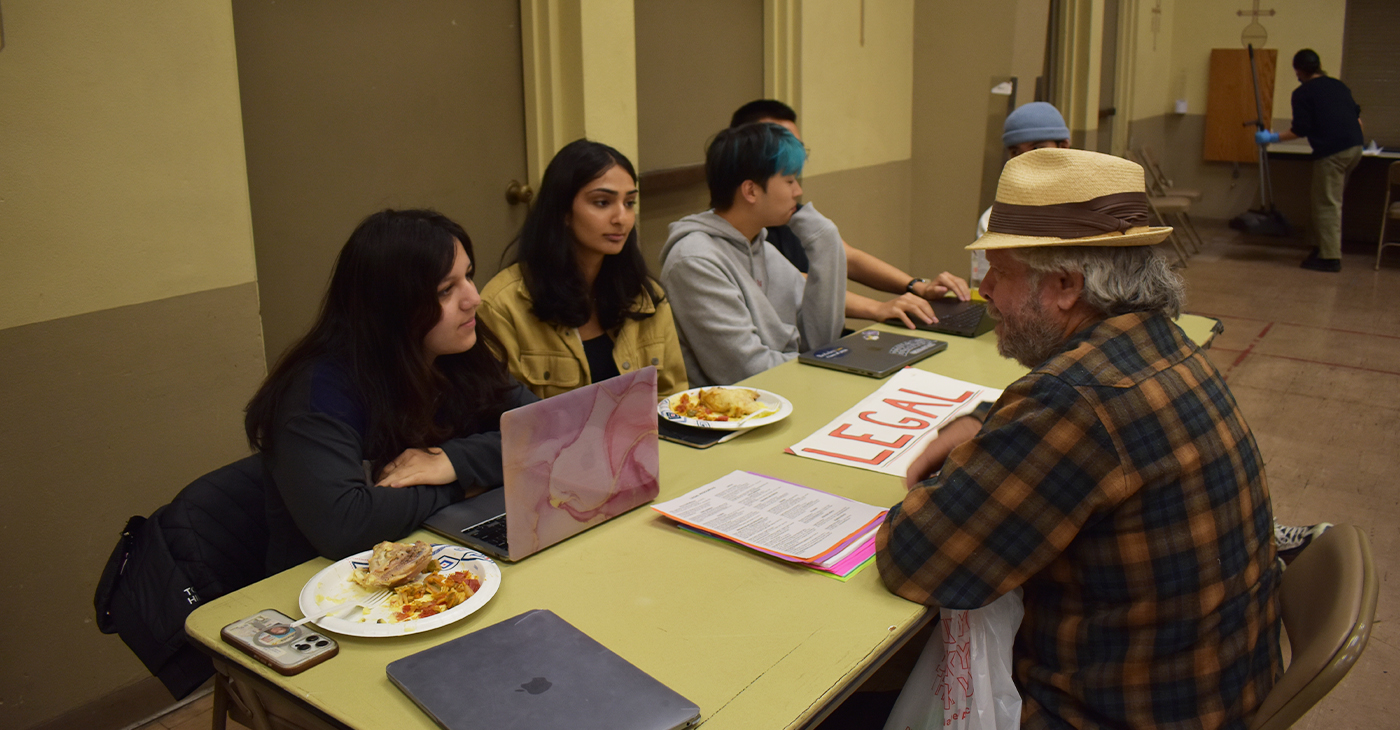
Part One
By Magaly Muñoz
Every Tuesday evening, the dining hall of First Presbyterian Church fills up with dozens of people eating, laughing and moving from table to table, receiving much-needed services from UC Berkeley students – just a few blocks away from the university’s campus.
Individuals seeking support services can be found in this multi-stationed room on the south end of the church talking to law students, student case managers, or receiving medical attention in a corner by healthcare professionals.
This weekly event is hosted by Cal students through a volunteer-run program called The Suitcase Clinic.
The clinic, founded in 1989, was intended to offer free resources to underserved communities in Berkeley and surrounding cities. The majority of the clinic’s clientele are unhoused or low-income people looking for extra support.
Those visiting the clinic can get legal advice, sign up for food assistance, receive housing resources, get medical help, or enjoy a hot, fresh meal. They can also get haircuts and foot washes from the student volunteers.
Nilo Golchini, executive director of the clinic, said one of the goals for most of the students working there is helping bridge the gap of trust that exists between many unhoused people and the healthcare and social welfare systems.
During their tenure in the program, many of the students say they become strong advocates for homelessness rights.

Visitors of the Suitcase Clinic can receive haircuts and foot washing by student volunteers every Tuesday evening. Photo by Magaly Muñoz.
“We’re also standing in solidarity with them. So, it’s not saying, ‘I’m going to help you, but I’m also going to stand with you,’” Golchini said.
Student volunteers get extensive training prior to working directly with clients. Those interested have to take a semester-long class to become versed in areas such as outreach, intersectionality, how to interact with unhoused people, how to sign people up for social services. and more.
Volunteers then get to pick from three different clinics: General, Women’s, or Youth and LGBTQ+.
The General Clinic is the most popular among visiting residents, while Women’s and Youth/LQBTQ+ have more specialized services for attendees.
The Women’s Clinic has many of the similar services to General, but also includes nail painting, childcare, and massages.
The Youth and LGBTQ+ Clinic offers a safe space for young people navigating living on the streets, with services that include housing referrals, wellness and recreation classes and employment resources.
Golchini explained that it’s important for them to keep these clinics separate because the different demographics experience poverty and homelessness differently than those who visit the General Clinic.

Suitcase Clinic student workers posing for a photo with a frequent clinic attendee. The Clinic is open to Berkeley unhoused and low-income residents who need medical or legal service, or a hot meal. Photo by Magaly Muñoz.
“We’re able to provide spaces where people can come in and feel safe and not feel like they’re constantly worried that something’s going to happen to them,” she said.
An outreach team also visits encampments every other Saturday in the Berkeley area to provide hygiene kits and encourage people to visit the in-person clinic, if possible.
However, Golchini said engagement has been low for some time now due to a recent decision by the U.S. Supreme Court that allows cities to ban and cite people for sleeping on the streets.
She said a lot of their clientele got displaced to other cities over time, making it difficult to stay in contact with the services the Clinic was providing for them.
But that hasn’t slowed down the students at the Clinic, if anything, it has pushed them to do more for the community they serve.
-

 Activism4 weeks ago
Activism4 weeks agoOakland Post: Week of November 20 – 26, 2024
-

 Activism4 weeks ago
Activism4 weeks agoAn Inside Look into How San Francisco Analyzes Homeless Encampments
-

 California Black Media4 weeks ago
California Black Media4 weeks agoCalifornia to Offer $43.7 Million in Federal Grants to Combat Hate Crimes
-

 Black History4 weeks ago
Black History4 weeks agoEmeline King: A Trailblazer in the Automotive Industry
-

 California Black Media4 weeks ago
California Black Media4 weeks agoCalifornia Department of Aging Offers Free Resources for Family Caregivers in November
-

 California Black Media4 weeks ago
California Black Media4 weeks agoGov. Newsom Goes to Washington to Advocate for California Priorities
-

 Activism4 weeks ago
Activism4 weeks agoOCCUR Hosts “Faith Forward” Conference in Oakland
-

 Activism3 weeks ago
Activism3 weeks agoOakland Post: Week of November 27 – December 3, 2024




